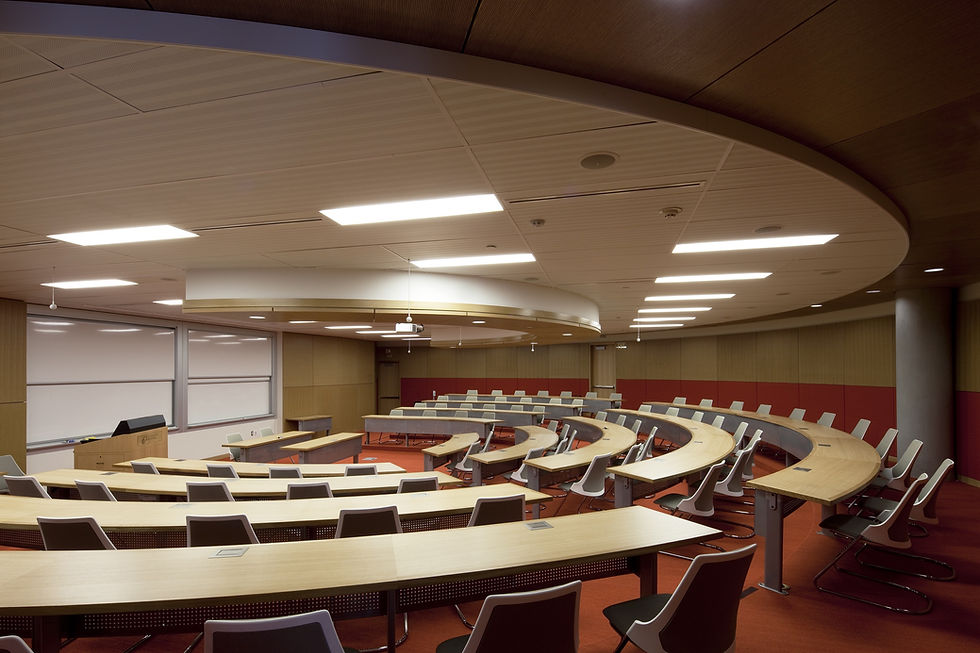CMC Students to Vote on Demonstration Policy Resolution
- Brandon Kung
- Apr 18, 2024
- 4 min read
Updated: Jun 8, 2024
This morning at 8:00 AM, all CMC students received an email inviting them to vote on a resolution calling for a revision of 7C and CMC demonstration policies. Voting will close at 8:00 AM on Friday, April 19.
Why are CMC students voting on this resolution?
On April 5, 2024, Pomona College President G. Gabrielle Starr called the Claremont Police Department on student demonstrators at Alexander Hall, leading to the arrests of 20 students. President Starr also issued interim suspensions to the Pomona students who were arrested, revoking their building access.
The arrests followed a series of escalations between protestors and administrators, which began when Pomona Divest From Apartheid (PDFA) initiated a sleep-in in front of Pomona’s Smith Campus Center eight days earlier. Campus staff began removing demonstration materials on April 5, including PDFA’s “mock apartheid wall,” attracting demonstrators who attempted to prevent the removal of the wall. Later that afternoon, protestors moved to Alexander Hall to voice their demands directly to President Starr. Soon after, Starr authorized the call, citing protestors’ refusal to identify themselves or leave the building as justification.
Pomona administrators’ decision to call the police on demonstrators and subsequent disciplinary prosecutions drew criticism from organizations across the Claremont Colleges. The Associated Students of Pomona College (ASPC), Executive Board of the Pitzer Student Senate, and Scripps Associated Students (SAS) all issued statements demanding that disciplinary measures be lifted.
On April 7, the Associated Students of Claremont McKenna College (ASCMC) Executive Board discussed issuing a statement themselves. During an ASCMC Senate meeting the next day, the Executive Board heard student opinions on the pending statement. Some students vehemently expressed their concern with the lack of transparency that accompanied the Executive Board’s decision to draft and release it themselves. After a lengthy discussion period, the Executive Board agreed to incorporate a list of items agreed upon by those present into their statement.
The Executive Board released their statement on April 10. It said that ASCMC was “deeply disappointed” by Pomona’s response, expressed “solidarity with students and their right to free speech,” affirmed CMC’s commitment to open dialogue, and called for a revision of the 7C demonstration policy.
Some students, dissatisfied with the Executive Board’s statement, submitted their own statement, the proposed resolution sent out to the CMC student body this morning. According to ASCMC’s Constitution, the Senate has the authority to pass “resolutions reflecting the opinion of the student body on topical issues,” but it must be approved by a majority vote of Senators and the entire student body. On Monday, the Senate approved the resolution in a 11 to 3 vote. Now, all CMC students have the opportunity to assert their opinions on the statement.
What does the resolution say?
The resolution strongly condemns the Pomona administration’s response to the protests on April 5, argues that it is in direct opposition to CMC’s ethos of open dialogue, and calls for the revision of the 7C demonstration policy (and CMC’s interpretation of the policy).
The resolution denounces the arrests and interim suspensions of students on the grounds that they caused a “chilling” effect on free speech. The decisions to call the police and issue interim suspensions, the authors of the resolution argue, were intended to silence opinions in opposition to the college and deter students from criticizing administrators in the future. They contend that, because CMC has a unique commitment to open dialogue between opposing viewpoints, Pomona’s actions directly contradict CMC’s values.
The authors claim that CMC’s administration could justify consequences of a similar nature against its own dissenting students because the 7Cs share a single overarching demonstration policy. Thus, it argues that the policy — and CMC’s interpretation of the policy — needs to be revised to specify the circumstances that allow for administrators to call the police and make justifying interim suspensions of demonstrators more difficult.
To do so, the resolution proposes a 7C-wide “committee that is comprised of students, administrators, and all relevant stakeholders” tasked with reviewing and modifying the policy so that it “can better protect the safety and rights of all.” To revise the CMC interpretation, it urges the formation of a similar CMC-specific committee that includes student activists.
The resolution also underscores the disproportionate risk police presence poses to marginalized students. Citing a video of a student being shoved by police and the 2022 HEDS survey results, it suggests that the calling of police officers created a climate of fear for minority students who already feel unsafe on campus.
Why does voting on this resolution matter?
Whether the resolution passes or not will be interpreted as a reflection of the sentiments of CMC’s student body as a whole. The more informed students are and the more students vote, the closer it will reflect our true opinions.
What will happen if the resolution passes?
The results will be sent to the Dean of Students Office as a demonstration of the student body’s beliefs.
What will happen if the resolution doesn’t pass?
It will be eligible to be reissued for a vote after the Senate substantially alters it.


Comments